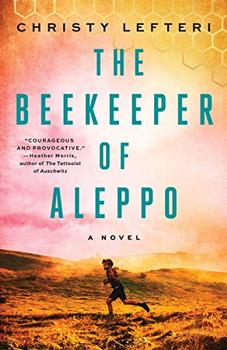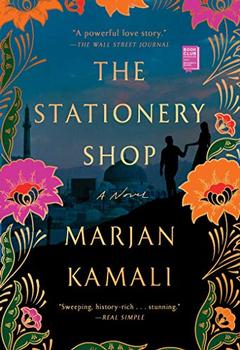Summary | Excerpt | Reading Guide | Reviews | Beyond the book | Read-Alikes | Genres & Themes | Author Bio

One typically expects to find a detailed family tree adorning the opening pages of, say, an epic fantasy, or a weighty historical novel. Less so a shortish family saga, which for the most part is set around a single household. However, the printed genealogy at the start of Celestial Bodies serves as an essential reference point for navigating the intricate web of family members we're introduced to and their complex interrelationships.
Set in the desert-fringed village of al-Awafi, the novel is a cross-generational chronicle of an extended, middle-class family coming to terms with an Oman that's transitioning from a society entrenched in traditions of slavery and arranged marriage, to a modern-day country that's beginning to embrace inclusivity, equal rights and the need for self-determinism.
We spend the most time with Abdallah, the son of the wealthy Merchant Sulayman, as he reflects on his fraught relationship with his father, his privileged children and his loveless marriage to Mayya.
Abdallah's interior monologue is interspersed with a shuffling deck of third-person narratives. Aside from lovelorn Mayya, we also meet her two sisters, bookish Asma and naïve Khawla. All three settle into arranged marriages—the former two out of a misguided sense of duty, Khawla in the belief she has been paired with her soul mate. Other chapters recount the stories of the sisters' parents, Azzan and Salima, exploring their personal losses, the intricacies of their tortured but functioning marriage and Azzan's affair with a mysterious mistress named Qamar.
However, the real standout character is not even a relative, blood or in-law. Zarifa is a slave who was bought for "twenty silver thalers" by Merchant Sulayman and who becomes a surrogate mother to Abdallah. Despite slavery having been outlawed in Oman in 1970, she continues to feel a sense of obligation and gratitude (and more besides) towards her master, who she believes saved her from a fate far worse than being a household slave. You may not always agree with her, but it is easy to empathize with this headstrong woman trying to make the best out of the cards she has been dealt.
There's no true protagonist in Celestial Bodies. Instead it's the family as a whole who occupy that central role, like some many-headed hydra. We become intimate with each person's secret lusts, hidden desires and indiscretions, and the characterization propels the story forward.
There's a pervading sense of isolation that haunts all of Alharthi's characters, despite the bonds of marriage and the lives shared together. You can't help but feel as if the entire book is meant to serve as a meditation on the inherent misery caused by arranged marriages, where individuals with little in common and no real prior relationship together are expected to find love and solace in each other.
As Asma comes to learn: "people are not simply unmade halves who find their other halves and miraculously become whole. Neither bodies nor spirits are empty globes split down the middle; no pair exists whose souls adhere perfectly like the two identical halves of a perfectly round sphere."
Celestial Bodies is a novel that is perhaps greater than the sum of its parts. Alharthi weaves it like a tapestry—a curious patch here, a perfunctory detail there. It's when you pull out to look at the creation in its entirety that you can truly appreciate its majesty.
It's also an especially rewarding read for those who prefer not to be spoon-fed all of a story's secrets in linear fashion. Alharthi possesses a canny ability to drop in puzzling nuggets of information out of nowhere, to the point where you may find yourself skimming back a few pages, as it can sometimes feel as though you've missed something important. But once you get into the rhythm of the author's see-sawing, non-chronological storytelling, you'll realize that all mysteries will be unraveled in due course, always satisfyingly and often to startling effect.
![]() This review
first ran in the January 8, 2020
issue of BookBrowse Recommends.
This review
first ran in the January 8, 2020
issue of BookBrowse Recommends.

If you liked Celestial Bodies, try these:

by Christy Lefteri
Published 2020
This unforgettable novel puts human faces on the Syrian war with the immigrant story of a beekeeper, his wife, and the triumph of spirit when the world becomes unrecognizable.

by Marjan Kamali
Published 2020
A powerful love story exploring loss, reconciliation, and the quirks of fate.
Your guide toexceptional books
BookBrowse seeks out and recommends the best in contemporary fiction and nonfiction—books that not only engage and entertain but also deepen our understanding of ourselves and the world around us.